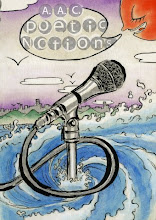
I recently posted a note on Facebook asking people’s knowledge and opinion of Kwanzaa. I only got a few responses, which I assume is because I posted between Thanksgiving break and finals. But, anyway, of the few people that did respond and a few that I asked, it’s clear that the large majority of people don’t have a clue what Kwanzaa is. So, what is Kwanzaa?
According to the Official Kwanzaa Website, Kwanzaa is an African-American and Pan-African holiday which celebrates family, community and culture. It’s celebrated December 26-January 1. The name comes from the phrase matunda ya kwanza, which means ‘first fruits’ in Swahili.
Kwanzaa began in 1966 by Dr. Maulana Karenga during the Black Freedom Movement. One reason the holiday was created was to reaffirm and bring back our African culture roots; secondly, it was to act as a repeated communal celebration to reiterate the connection between us as a people. Finally, it was designed to introduce the Nguzo Saba, better known as the Seven Principles, upon which Kwanzaa is based.
These principles, in order, are:
Umoja (Unity) - To strive for and maintain unity in the family, community, nation and race.
Kujichagulia (Self-determination) - To define ourselves, name ourselves, create for ourselves and speak for ourselves.
Ujima (Collective Work and Responsibility) - To build and maintain our community together and make our brother’s and sister’s problems our problems and to solve them together.
Ujamaa (Cooperative Economics) - To build and maintain our own stores, shops and other businesses and to profit from them together.
Nia (Purpose) - To make our combined job the building and developing of our community in order to restore our people to their traditional greatness.
Kuumba (Creativity)- To do always as much as we can, in the way we can, in order to leave our community more beautiful and beneficial than we inherited it.
Imani (Faith) - To believe with all our heart in our people, our parents, our teachers, our leaders and the righteousness and victory of our struggle.
For more information about Kwanzaa and how to celebrate, visit: http://www.theofficialkwanzaawebsite.org/.







